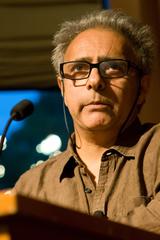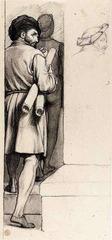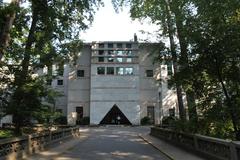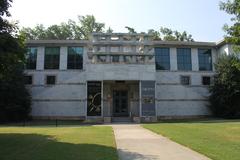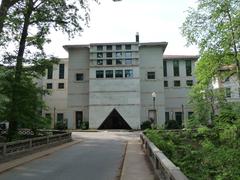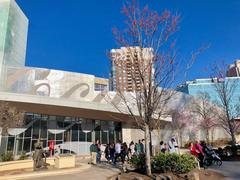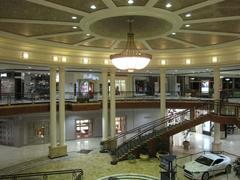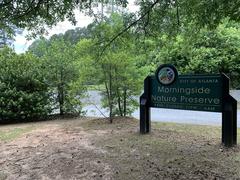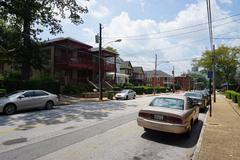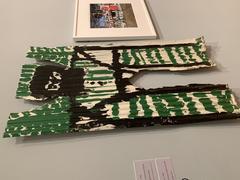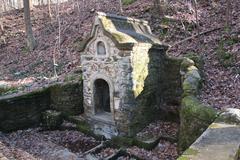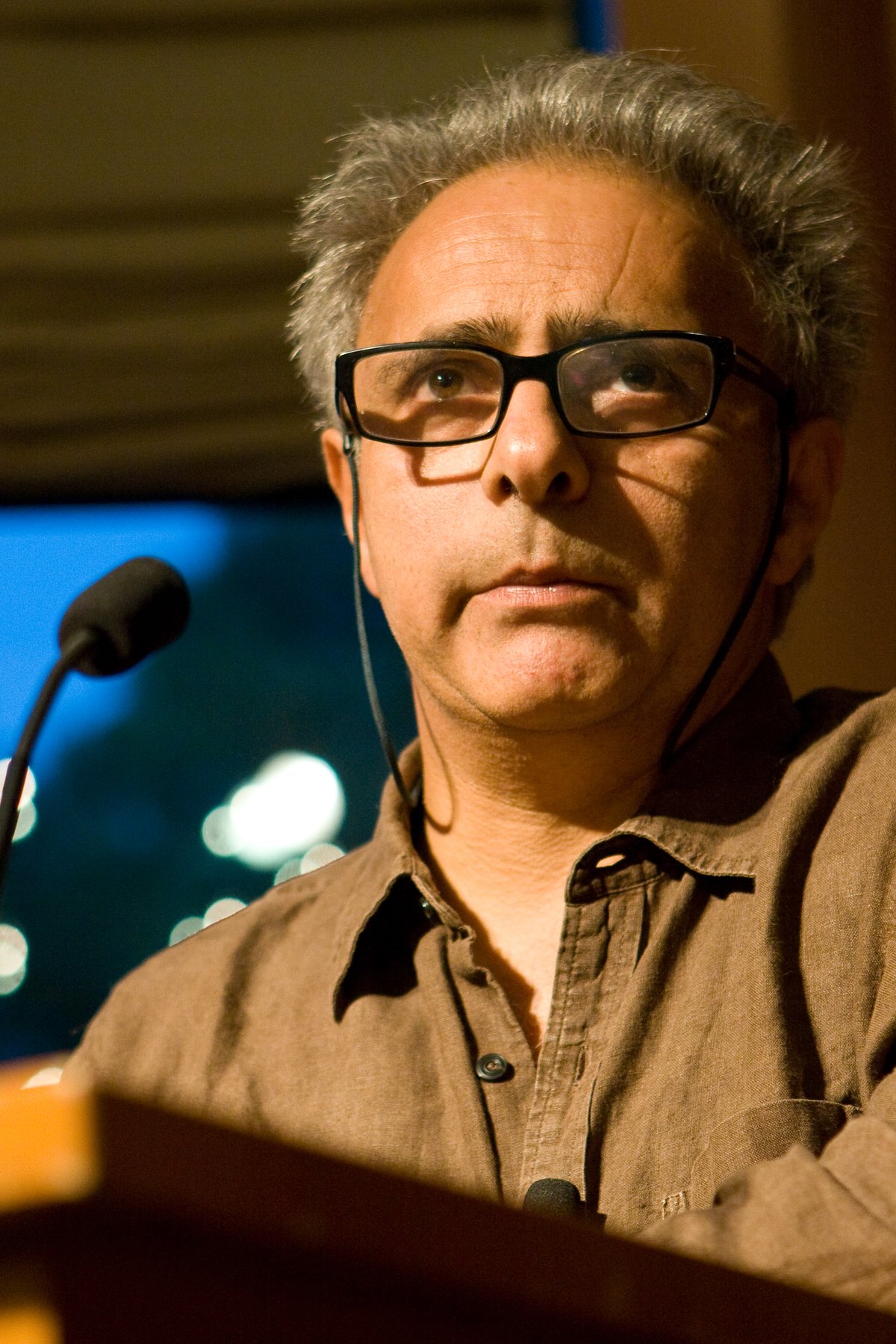
Michael C. Carlos Museum Visiting Guide: Hours, Tickets, and Tips
Date: 19/07/2024
Why Visit Michael C. Carlos Museum?
Nestled in the heart of Emory University in Atlanta, Georgia, the Michael C. Carlos Museum stands as a premier destination for art and history enthusiasts alike. Established in 1919, this museum has grown exponentially, becoming a significant cultural institution renowned for its extensive collections and educational programs. Named in honor of philanthropist Michael C. Carlos, whose generous donations have greatly contributed to its development, the museum boasts a rich history that spans over a century (Emory University).
The museum’s collection encompasses over 17,000 artifacts, covering 9,000 years of history with a particular emphasis on ancient civilizations such as Egypt, Greece, Rome, and the Near East (Carlos Museum). This comprehensive guide aims to provide visitors with all the necessary information to plan an enriching visit to the Michael C. Carlos Museum, including historical context, visitor tips, and nearby attractions.
Contents Overview
- Early Beginnings
- Expansion and Development
- Major Renovations and Expansions
- Notable Acquisitions and Exhibitions
- Visitor Information
- Travel Tips
- Nearby Attractions
- Accessibility
- Educational and Community Outreach
- Digital Initiatives and Online Resources
- FAQ
Early Beginnings
The Michael C. Carlos Museum, located on the campus of Emory University in Atlanta, Georgia, has a rich history dating back to the early 20th century. The museum’s origins can be traced to 1919 when Emory University acquired a small collection of artifacts from the Near East, initially housed in the university’s library. This modest collection laid the foundation for what would eventually become one of the Southeast’s most significant cultural institutions.
Expansion and Development
In the 1920s and 1930s, the collection began to grow significantly, thanks to donations and acquisitions. One pivotal moment in the museum’s history occurred in 1926 when the university received a substantial donation of Egyptian artifacts from the estate of William Arthur Shelton, a Methodist missionary and Emory alumnus. This collection included mummies, coffins, and other ancient Egyptian artifacts, which became a cornerstone of the museum’s holdings.
The museum continued to expand its collection throughout the mid-20th century, acquiring artifacts from various ancient civilizations, including Greece, Rome, and the Near East. In 1985, the museum was officially named the Michael C. Carlos Museum in honor of Michael C. Carlos, a prominent Atlanta businessman and philanthropist whose generous donations significantly contributed to the museum’s growth and development.
Major Renovations and Expansions
The late 20th and early 21st centuries saw significant renovations and expansions that transformed the Michael C. Carlos Museum into a world-class institution. In 1993, the museum underwent a major renovation and expansion project designed by renowned architect Michael Graves. This project included the construction of a new wing, which provided additional gallery space and modern facilities to accommodate the growing collection and enhance the visitor experience.
Notable Acquisitions and Exhibitions
Over the years, the Michael C. Carlos Museum has continued to acquire significant artifacts and host notable exhibitions that have garnered international attention. One of the most significant acquisitions in recent history is the purchase of the Stela of Mentuwoser, an ancient Egyptian limestone stela dating back to the Middle Kingdom (c. 2000-1700 BCE). This artifact, which depicts the high official Mentuwoser and his family, is considered one of the finest examples of Middle Kingdom art and provides valuable insights into ancient Egyptian society and culture.
In addition to its permanent collection, the museum has hosted numerous temporary exhibitions that have attracted visitors from around the world. Notable exhibitions include “Tutankhamun: The Golden King and the Great Pharaohs,” which featured artifacts from the tomb of Tutankhamun and other ancient Egyptian treasures, and “Divine Felines: Cats of Ancient Egypt,” which explored the role of cats in ancient Egyptian religion and society.
Visitor Information
The Michael C. Carlos Museum is open to the public from Tuesday to Friday, 10 AM to 4 PM, and on weekends from 12 PM to 5 PM. The museum is closed on Mondays and major holidays. Tickets for adults are priced at $8, seniors and students at $6, and children under six can enter for free. Members of the museum also enjoy free admission. For more details on visiting hours and ticketing, please visit the museum’s official website.
Travel Tips
When planning your visit to the Michael C. Carlos Museum, consider using public transportation or ride-sharing services to avoid parking hassles. The museum is conveniently located near several bus stops and the Emory University campus shuttle service. If you are driving, there are parking facilities available on the Emory University campus, but it is advisable to check parking availability in advance.
Nearby Attractions
While visiting the Michael C. Carlos Museum, take the opportunity to explore nearby attractions in Atlanta. The Emory University campus itself is beautiful, with numerous walking paths and green spaces. Additionally, the Fernbank Museum of Natural History and the Atlanta Botanical Garden are just a short drive away, offering further cultural and natural explorations.
Accessibility
The Michael C. Carlos Museum is committed to providing an accessible and inclusive experience for all visitors. The museum offers wheelchair accessibility throughout its facilities, including restrooms and galleries. Assistance animals are welcome, and the museum provides resources for visitors with visual and hearing impairments. For specific accessibility needs, it is recommended to contact the museum in advance.
Educational and Community Outreach
The Michael C. Carlos Museum is a center for education and community engagement. The museum offers a wide range of educational programs and resources for visitors of all ages, including guided tours, lectures, workshops, and interactive exhibits. These programs are designed to enhance the understanding and appreciation of ancient art and culture, fostering a deeper connection between the museum and the community.
One of the museum’s most notable educational initiatives is the Carlos Museum’s Art Conservation Program, which provides hands-on training and experience in the conservation and preservation of ancient artifacts. This program, which is one of the few of its kind in the United States, has trained numerous students and professionals in the field of art conservation, contributing to the preservation of cultural heritage for future generations.
Digital Initiatives and Online Resources
In recent years, the Michael C. Carlos Museum has embraced digital technology to enhance its educational and outreach efforts. The museum’s website (Michael C. Carlos Museum) offers a wealth of online resources, including virtual tours, digital exhibitions, and educational materials. These resources provide access to the museum’s collection and programs to a global audience, allowing people from around the world to explore and learn about ancient art and culture.
The museum has also developed a mobile app that offers interactive features and multimedia content, enhancing the visitor experience both on-site and remotely. The app includes audio guides, detailed information about the artifacts, and interactive maps, providing a comprehensive and engaging way to explore the museum’s collection.
FAQ
What are the visiting hours for the Michael C. Carlos Museum?
The museum is open from Tuesday to Friday, 10 AM to 4 PM, and on weekends from 12 PM to 5 PM. It is closed on Mondays and major holidays.
How much are the tickets for the Michael C. Carlos Museum?
Tickets are priced at $8 for adults, $6 for seniors and students, and free for children under six. Members enjoy free admission.
Is the Michael C. Carlos Museum accessible?
Yes, the museum is wheelchair accessible and provides resources for visitors with visual and hearing impairments. Assistance animals are welcome.
Conclusion
The Michael C. Carlos Museum is not just a repository of ancient artifacts; it is a vibrant educational and cultural hub that offers a deep dive into the history and art of ancient civilizations. From its modest beginnings in 1919 to its current status as a world-class institution, the museum has continually evolved, thanks to significant contributions from individuals like Michael C. Carlos and meticulous conservation efforts. Visitors can explore a wide range of collections that include Egyptian mummies, Greek sculptures, and African masks, each telling a unique story of human history and creativity (Carlos Museum). Beyond its exhibitions, the museum is committed to community engagement and education, offering various programs and resources for visitors of all ages. Whether you’re a local or a tourist, a visit to the Michael C. Carlos Museum promises to be a memorable and enlightening experience. For more information and the latest updates, be sure to check the official museum website and follow them on social media.
Sources and Further Reading
- Emory University. (n.d.). https://www.emory.edu
- Carlos Museum. (n.d.). https://carlos.emory.edu
